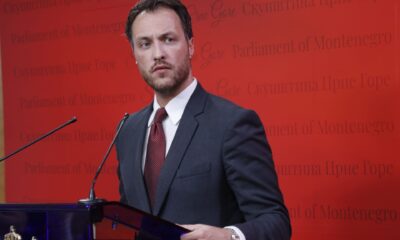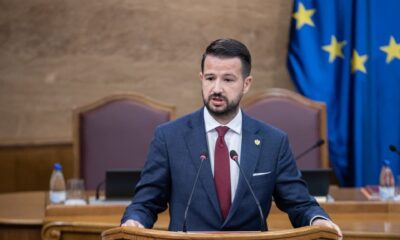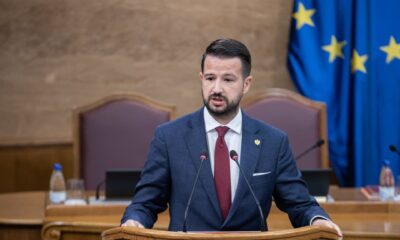Lifestyle
Vučić Responds to Montenegro’s Accusations on Turkish Relations

The President of Serbia, Aleksandar Vučić, addressed recent accusations from Montenegro claiming that the Serbian government is responsible for issues related to Turkey. This statement comes in response to comments made by Rifat Fejzić, the head of the Islamic Community in Montenegro, who suggested that Belgrade may be punishing Turkey through its actions in Montenegro.
During a press conference, Vučić highlighted that accusations of Serbia instigating violence or criminal activity in Montenegro are unfounded. He specifically noted that the current Turkish population in Montenegro is estimated at 13,000. Vučić remarked, “There was an incident involving stabbings, and now they are accusing the authorities in Belgrade for their problems.” He emphasized that the regions of Kavači and Škaljari are not located in Serbia, asserting that it is not Serbia that is causing harm within Montenegro but rather incidents occurring in Serbia that are being misattributed.
Escalating Tensions in Regional Politics
Vučić expressed frustration at the ongoing narrative that places blame on Serbia for regional instability. He stated, “It is tiresome to hear about who is responsible for criminal activities, not just in the Balkans but beyond.” His comments reflect a broader concern regarding the portrayal of Serbia in the context of its relationships with neighboring countries and international allies.
The backdrop to this dispute involves historical tensions between Serbia and Montenegro, particularly regarding ethnic and political identities. Montenegro, which has a significant Muslim population, has often found itself navigating its relationships between Serbia and Turkey. The recent remarks by Fejzić could indicate a deeper undercurrent of unease in Montenegro regarding its own governance and external influences.
Vučić’s statements serve as a reminder of the complex dynamics at play in the region. The ongoing dialogue about criminality and its roots may reflect the challenges faced by both the Serbian and Montenegrin governments as they confront internal and external pressures.
Implications for Serbia-Montenegro Relations
The allegations made by Fejzić could strain relations further between Serbia and Montenegro, particularly as both countries navigate their positions within the broader geopolitical landscape. As both nations seek to establish their identities and strengthen their sovereignty, the accusations could hinder cooperative efforts.
With Serbia’s aspirations for European Union integration and Montenegro’s ongoing political evolution, the dialogue surrounding these accusations will likely continue to evolve. The complexity of regional politics means that mutual understanding and diplomacy will be crucial in addressing grievances and building a stable future.
As the situation develops, the international community will be watching closely to see how both governments respond to these challenges and whether they can find common ground amid rising tensions.
-

 Entertainment2 months ago
Entertainment2 months agoAnn Ming Reflects on ITV’s ‘I Fought the Law’ Drama
-

 Entertainment3 months ago
Entertainment3 months agoKate Garraway Sells £2 Million Home Amid Financial Struggles
-

 Entertainment2 months ago
Entertainment2 months agoCoronation Street’s Carl Webster Faces Trouble with New Affairs
-

 Health2 months ago
Health2 months agoKatie Price Faces New Health Concerns After Cancer Symptoms Resurface
-

 Entertainment2 months ago
Entertainment2 months agoWhere is Tinder Swindler Simon Leviev? Latest Updates Revealed
-

 Entertainment3 months ago
Entertainment3 months agoKim Cattrall Posts Cryptic Message After HBO’s Sequel Cancellation
-

 Entertainment2 months ago
Entertainment2 months agoOlivia Attwood Opens Up About Fallout with Former Best Friend
-

 Entertainment2 months ago
Entertainment2 months agoMasterChef Faces Turmoil as Tom Kerridge Withdraws from Hosting Role
-

 Entertainment3 months ago
Entertainment3 months agoSpeculation Surrounds Home and Away as Cast Departures Mount
-

 Entertainment3 months ago
Entertainment3 months agoMarkiplier Addresses AI Controversy During Livestream Response
-

 World2 months ago
World2 months agoCole Palmer’s Mysterious Message to Kobbie Mainoo Sparks Speculation
-

 Entertainment2 months ago
Entertainment2 months agoITV’s I Fought the Law: Unraveling the True Story Behind the Drama



















